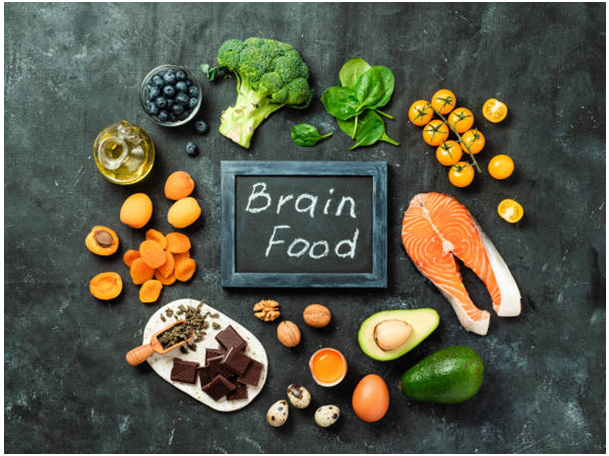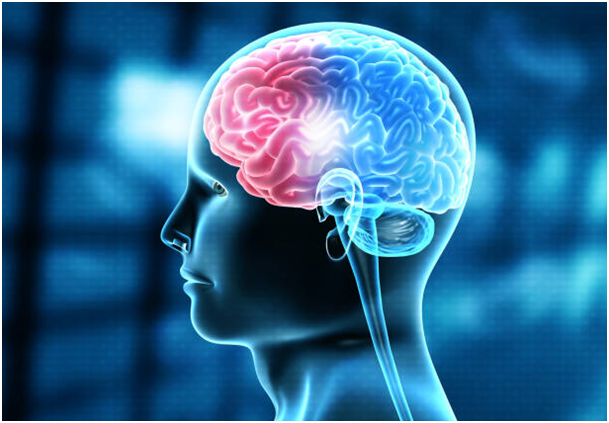The human brain is the most complex organ in the body,unlike your heart and lungs, your brain won’t show outward signs of deterioration. You can’t see it or touch it, but it’s a different story on the inside: Your brain changes as you age.Every day it produces thousands of thoughts and processes millions of bits of information. Many factors can influence your brain’s health and your potential for thinking clearly, learning new things, and acting with purpose on what you want to do in life.
From developing good study habits to securing a healthy diet, maintaining a healthy brain can be challenging. Our tips help you take charge of your brain health and improve concentration and attention so that you can meet your goals. Check out following tips to help keep your brain healthy as you age.
1. Get mental stimulation
Consistent mental stimulation sharpens your focus and can improve memory, while challenging your brain can result in the formation of new nerve connections – even well into old age. Consider how you can incorporate stimulating activities into your daily life- being a lifelong learner is one of the best ways to engage your mind.Try different activities and find those that are fun for you.
2. Get physical exercise
You can boost your brain power by keeping your heart and body healthy. Regular exercise strengthens your heart and helps you control your weight, which reduces strain on the blood vessels that supply oxygen to your brain, too.

Exercise is one of the best things you can do for your heart, muscles, and mind. Exercise has multiple known benefits, and it appears that regular physical activity benefits the brain. Multiple research studies show that people who are physically active are less likely to experience a decline in their mental function and have a lower risk of developing Alzheimer’s disease. We believe these benefits are a result of increased blood flow to your brain during exercise.
Regular physical activity makes your brain as well as your body healthier. So bring on the brisk walks, water aerobics, cycling, dancing, gardening, golfing and playing with your kids or grandkids!
3. Improve your diet
Your mental health is just as important as your physical health. Eating well can help you prevent or reduce symptoms of some types of mental health conditions, such as depression and anxiety. Eating a healthy diet also helps protect against many other mental health conditions.

4. Build social networks
Spending time with others can have a positive impact on your health. Connecting with family and friends can help reduce anxiety and depression and help you live longer.
5. Care for your emotions
If you take care of your emotions, mental health, and sleep habits, you’ll be less likely to experience anxiety, depression, or sleep deprivation. These are important goals: if you’re anxious or depressed, sleep deprivation can make these things worse.
6. Don’t abuse alcohol
Drinking is not a healthy way to manage stress, but its fine to have a drink or two at the end of the day. Just be sure you don’t drink to excess.
7. Protect your head
Protect your head and brain! A head injury can be life-changing. Even a mild injury, like a concussion, increases the risk of cognitive issues later in life.
8. Avoid tobacco
People who don’t use tobacco get more healthy years of life — and avoid years of sickness — than people who do. Using tobacco increases the risk for many cancers, heart disease and stroke.
9. Consider low-dose aspirin
Low-dose aspirin may be appropriate for you if you have had a heart attack, stroke, or other blood vessel disease. Talk with your doctor before starting an aspirin regimen.
10. Improve your cholesterol
One of the most important things you can do to help prevent dementia is to improve your cholesterol levels. High levels of LDL (“bad”) cholesterol are associated with an increased the risk of dementia, while high levels of HDL (“good”) cholesterol can decrease your risk. Diet, exercise, weight control and avoiding tobacco go a long way toward improving your cholesterol levels, but if you need more help to get them where they need to be, ask your doctor about medication.
11. Improve your blood pressure
High blood pressure in midlife is a strong risk factor for dementia and memory loss. Improve your blood pressure by staying fit, eliminating stress and maintaining a healthy weight.
12. Improve your blood sugar
Diabetes can be a silent risk factor for dementia by speeding up the damage to your brain and nerves. Ask your doctor what you can do to keep your blood sugar under control.








